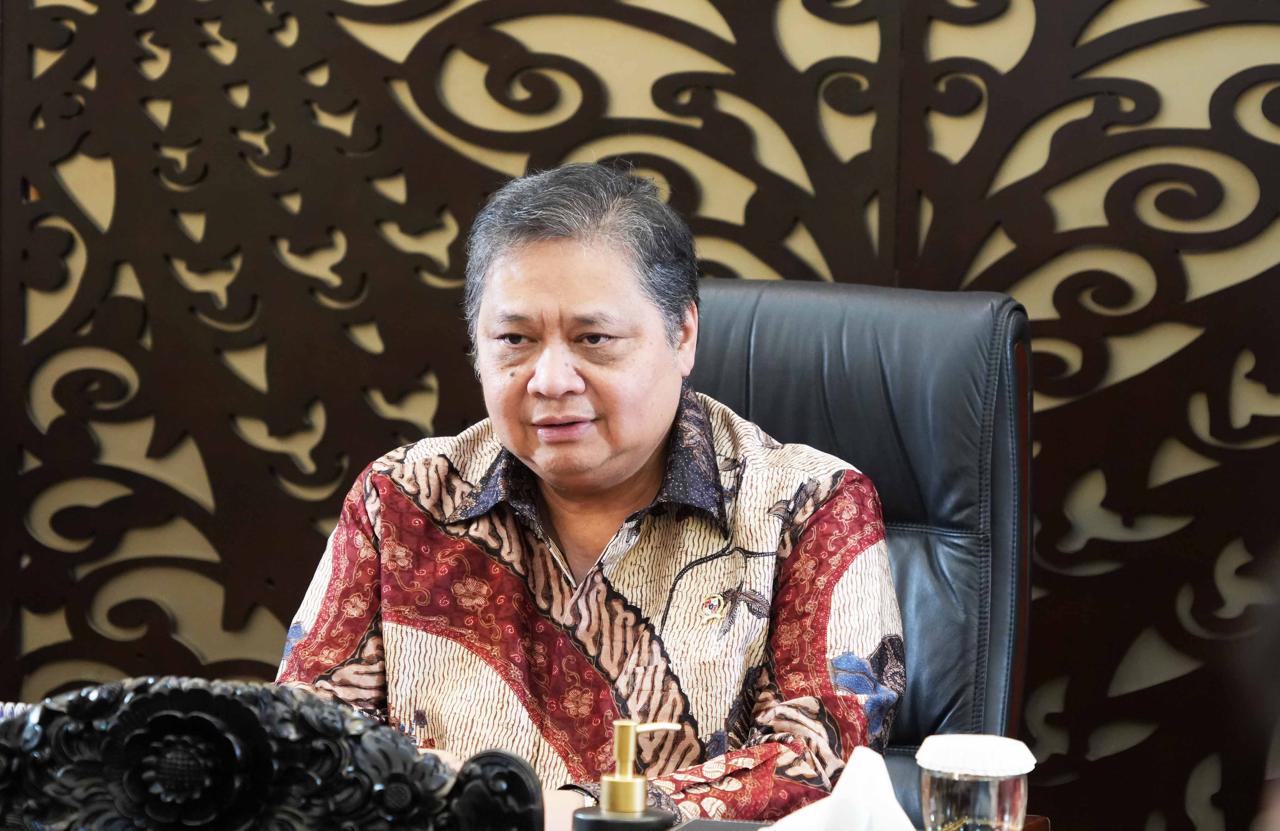
Government Commits to Reducing Carbon Emissions by Developing Green Economy: Coordinating Minister Airlangga
07 Apr 2022 17:03COORDINATING MINISTRY FOR ECONOMIC AFFAIRS
REPUBLIC OF INDONESIA
PRESS RELEASE
HM.4.6/189/SET.M.EKON.3/4/2022
Government Commits to Reducing Carbon Emissions by Developing Green Economy: Coordinating Minister Airlangga
Jakarta, April 7th, 2022
The Indonesian government pays full attention to the development of new and renewable energy on a national and global scale. In fact, the energy transition is one of the three main topics in the G20 Presidency of Indonesia this year, reflecting that new and renewable energy is the priority sector in Indonesia's future development.
In the future, the Indonesian economy will certainly be more expansive, so it is necessary to increase energy capacity to meet future needs. Meanwhile, Indonesia also actively participates in joint efforts to mitigate global emissions in order to anticipate climate change, where the Government has committed to achieve Net Zero Emissions in 2060.
“We must balancing the future increase in energy demand with carbon reduction commitments. For this reason, the development of new and renewable energy is very important," said Coordinating Minister for Economic Affairs Airlangga Hartarto at the "South Korea RE-Invest Indonesia 2022" event held in collaboration among the Indonesian Embassy in South Korea, CSIS, and Tenggara Strategics, Thursday (7/04).
New and renewable energy supposed to be able to replace carbon energy that has high emissions such as fossil fuels, especially to meet domestic energy needs. Tharefore, the Government of Indonesia is targeting to achieve the proportion of new and renewable energy of 23% of total energy sources by 2025. In 2021, the energy transformation has accelerated by reducing carbon emissions at power plants in Indonesia up to 10.37 million tons or more than double the target.
“The Indonesian government will also implement a carbon pricing policy in the form of a carbon cap and trade, as well as a carbon tax scheme in 2023. This policy will set an upper limit on carbon emissions in certain sectors and introduce a trade and carbon tax scheme. We hope this policy can provide benefits for the industry converting its energy into renewable sources," Coordinating Minister Airlangga explained.
Efforts to accelerate the energy transformation process in order to reach the target proportion will not only require support from the national private sectors, but also from the global communities. This is common thing because preventing climate change is a global responsibility and requires collaboration from all countries. "Such global support, including financing and technology transfer, is contributed by developed countries such as South Korea," Coordinating Minister Airlangga added.
From a regulatory perspective, Indonesia already has UU No.11/2020 about Job Creation Law, to create an conducive business ecosystem without ignoring` standards safety and security values, and environmental sustainability. In addition, the Indonesia Investment Authority (INA) has also been established which will provide alternative investment facilities for the development of a green economy.
"I hope today's event can be a bridging cooperation between the Indonesian and South Korean private sectors in developing new and renewable energy, which will support the achievement of the target of 23% of the contribution of new and renewable energy," Coordinating Minister Airlangga concluded. (rep/fsr/mhm/iqb)
***
Bureau of Communications, Information Services, and Meetings
Coordinating Ministry for Economic Affairs of the Republic of Indonesia
Haryo Limanseto
Website: www.ekon.go.id
Twitter, Instagram, Facebook, TikTok, & Youtube: @PerekonomianRI
Email: humas@ekon.go.id
LinkedIn: Coordinating Ministry for Economic Affairs of the Republic of Indonesia



